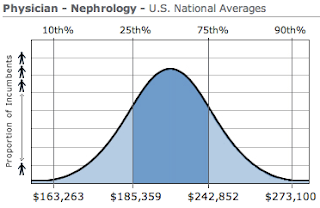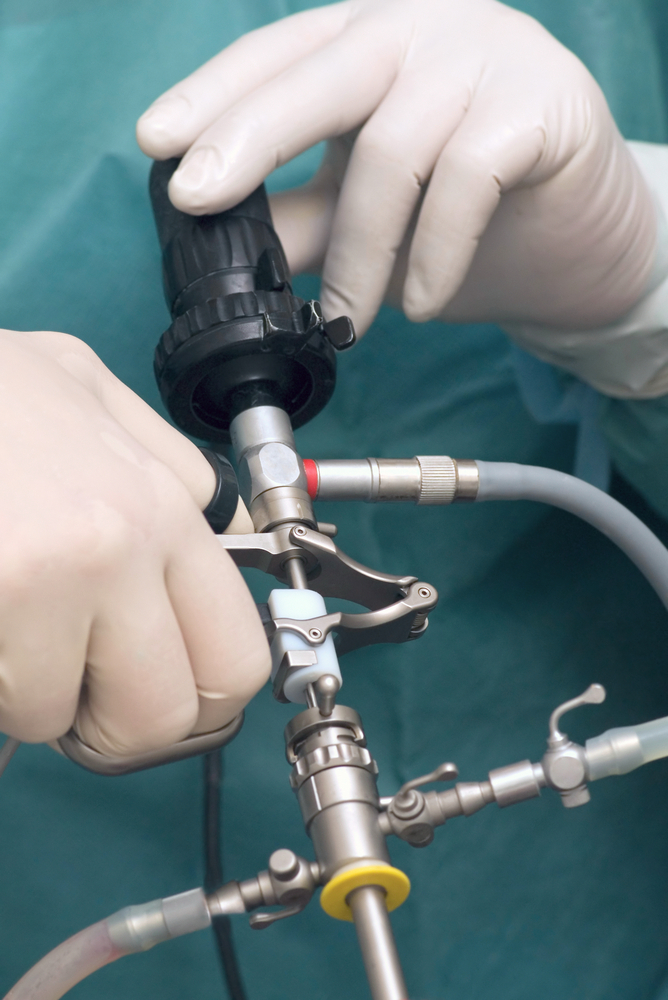A nephrologist is an expert in the functions and diseases of the kidneys. Along with that territory includes electrolyte imbalances, hypertension, blood in your urine, as well as dialysis. We’ve covered the importance of diabetics needing primary care doctors and endocrinologists to manage their care. However, even with proper care, diabetics can develop kidney problems that without treatment can lead to kidney failure.
Nephrologists usually practice in the clinic but might also be seen in a dialysis center or doing rounds in the hospital. I know I have personally consulted nephrologists on many patients presenting in the hospital with renal failure or insanely high, resistant to treatment, electrolytes.
Just how much do nephrologists make?
There is a large gap between three sources. Salary.com reports the median expected salary as $209,628. Whereas Medscape reports a median compensation of $230,000. These salaries are not as high as other specialties simply because nephrology is not a procedural field.
If you are starting right out of residency, you might make $170,000 – $191,000. With a few years of experience, you’ll meet the median expected salary. Maximum salaries have been reported in the $400-$600K range.
With that said, the majority of reporting nephrologists are making between $185,342 and $242,852.
In order to become a nephrologist, you will need to do an internal medicine residency first. Then you will need to do 2-4 years of fellowship.
The majority of nephrology fellowships are 2 years long. However, if you are interested in academic medicine or research, you can opt to do the 3 or 4 year long fellowships that provide that training.
Currently, there are 143 programs offering over 380 nephrology fellowship spots. 91% of positions were filled which means competition might be tough. Interestingly, 69% of those who matched into nephrology were international medical graduates!
Nephrologists are the physicians of kidneys. Their expertise is needed in nearly all cases of acute or chronic renal failure, dialysis, kidney transplants, and rare autoimmune diseases. The fellowship is only 2 years after an Internal Medicine residency. That’s hardly a blink of an eye after all the training you’ve already been through.
Sources
Salary.com, Physician – Nephrology Physician Salary
Allied Physicians – Physician Salary Survey
Mescape Compensation Survey
NMRP Fellowship Results
ACGME





